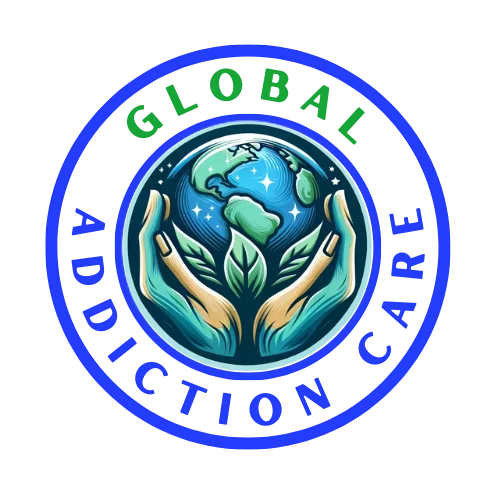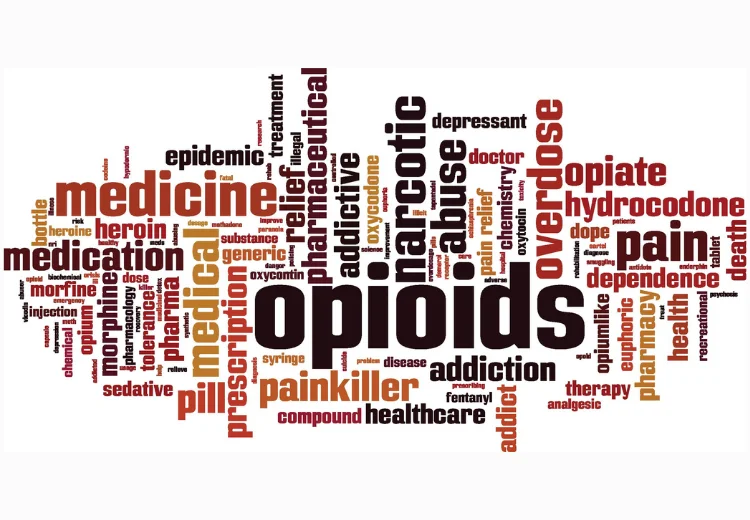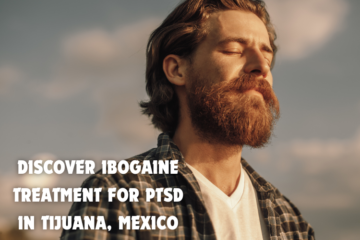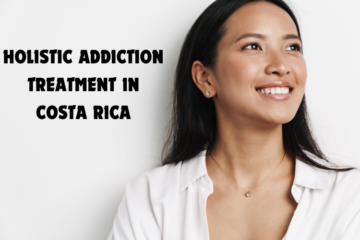In a world where the shadow of opioid addiction looms large, affecting millions across the globe, there lies a ray of hope in an unexpected place. Deep within the heart of Mexico, a unique treatment whispers promises of new beginnings. It’s called Ibogaine, a name that’s becoming increasingly familiar to those entangled in the grip of opioid addiction.
This isn’t about a magical cure, but about a journey of recovery, one that’s gaining attention far and wide. Ibogaine, derived from a West African plant, has stepped onto the world stage as a controversial yet compelling alternative in battling opioid addiction. While traditional treatments often struggle to cut the deep roots of this crisis, Ibogaine offers a different path, one that is unconventional but full of potential.
Table of Contents
What is Ibogaine?
So, what’s Ibogaine? It’s this naturally occurring psychoactive substance found in a West African plant called Iboga. Pretty interesting, right? Historically, people in West Africa used it in spiritual ceremonies for its hallucinogenic properties. It’s like it’s been hiding in plain sight for centuries, waiting to be discovered for other uses.
Fast forward to today, and Ibogaine has entered the conversation as a potential game-changer for treating opioid addiction. It’s not your typical treatment; it works in a way that’s quite different from what you’d expect. Instead of just easing withdrawal symptoms or blocking cravings like traditional methods, Ibogaine goes deeper. It kind of resets the brain’s addiction pathways. Imagine it like hitting a ‘refresh’ button in your brain, giving a person the chance to start over without the intense cravings or withdrawal.
Now, the science part is super fascinating. When someone takes Ibogaine, it’s converted by the body into a compound that targets the areas of the brain affected by opioid addiction. It binds to several receptors involved in addiction, disrupting the pattern set by the opioids. This interruption can significantly reduce withdrawal symptoms and cravings, which is a big deal for anyone fighting addiction.
Ibogaine Treatment in Mexico
You see, while many countries, including the United States, have strict regulations around Ibogaine, classifying it as an illegal or controlled substance, Mexico dances to a different beat. There, Ibogaine isn’t just legal; it’s recognized as a therapeutic substance. This legal status opens doors for treatment centers to operate more freely, exploring the potential of Ibogaine in helping individuals overcome opioid addiction. It’s like Mexico has become this beacon of hope for those seeking alternative treatments.
Now, about these treatment centers in Mexico. They’re not your typical medical facilities. Picture this: serene, often coastal locations that feel more like retreats than hospitals. These centers focus on holistic healing, blending Ibogaine treatment with a range of supportive therapies like counseling, nutritional support, and mindfulness practices. It’s all about healing the whole person, not just treating the addiction.
Some of these centers have gained international fame for their work. Places like Experience Ibogaine Treatment Center and Ibogaine by David Dardashti are renowned for their expertise and success rates. They’re not just about administering Ibogaine; they provide comprehensive care, guiding patients through the entire recovery process, which can be quite intense given the nature of Ibogaine therapy.
In these centers, the focus is on safety and personalized care. Teams of medical professionals, including doctors and therapists, tailor the treatment to each individual’s needs, ensuring the best possible outcomes. It’s a world away from the one-size-fits-all approach that’s common in traditional addiction treatment.
The Effectiveness of Ibogaine Treatment
Let’s break down the effectiveness of Ibogaine treatment into some easy-to-digest points. It’s a pretty fascinating topic!
- Hit the Reset Button on Addiction: One of the coolest things about Ibogaine is how it seems to reset addiction in the brain. It’s like turning off and on your computer when it’s acting up, but for your brain’s addiction pathways. This reset can significantly reduce cravings and withdrawal symptoms, which is a huge relief for anyone struggling with opioid addiction.
- Not Just Symptom Management: Unlike some traditional treatments that focus on managing symptoms, Ibogaine goes deeper. It aims to address the root cause of addiction. This approach is like fixing a leaky pipe rather than just constantly mopping up the water.
- A Mental and Emotional Journey: Ibogaine treatment often involves a psychological component, where patients experience a kind of introspective journey. It’s like a deep dive into your mind, helping you confront and understand the underlying issues of your addiction. Think of it as a therapy session on steroids.
- Quick Action: Here’s something interesting – Ibogaine works pretty fast. Many patients report a significant reduction in withdrawal symptoms and cravings after just one treatment session. It’s like flipping a switch, which is pretty remarkable considering how tough kicking addiction can be.
- Long-Term Outcomes: While the immediate effects are impressive, it’s the long-term outcomes that really count. Many people who undergo Ibogaine treatment find they have a better chance of staying off opioids long-term. It’s not a magic pill, but it definitely gives a fighting chance.
- A Holistic Approach: In the best treatment scenarios, Ibogaine is part of a broader, more holistic treatment plan. This means it’s often combined with other therapies, like counseling, to ensure a well-rounded recovery. It’s all about tackling the problem from all angles.
- It’s Not for Everyone: Here’s the catch – Ibogaine isn’t a one-size-fits-all solution. It works wonders for some, but it’s not suitable for everyone. Plus, it comes with its own risks, so it’s crucial to have medical supervision.
Ibogaine Treatment vs Traditional Treatment
When we’re talking about treating opioid addiction, it’s like being in a complex maze with multiple exits, each leading to a different path of recovery. Among these paths, there are some well-trodden ones like methadone and buprenorphine, and then there’s this less conventional route, somewhat of a hidden trail, called Ibogaine treatment, especially popular in places like Mexico.
| Aspect | Traditional Treatments | Ibogaine Treatment |
|---|---|---|
| What are they? | Methadone and Buprenorphine are medications used to treat opioid addiction. They help reduce cravings and withdrawal symptoms. | Ibogaine is a naturally occurring psychoactive substance derived from a West African shrub, used for radical detoxification. |
| How do they work? | These work by binding to the same brain receptors as opioids, reducing cravings and easing withdrawal without the high. | Ibogaine is believed to reset brain chemistry affected by addiction, potentially reducing withdrawal symptoms and cravings. |
| Advantages | Well-researched and medically approved. Regulated and controlled dosage. Accessible through healthcare providers. Known effectiveness over time. | Offers a rapid detox process May provide a psychological introspective experience aiding in recovery. Can be a one-time treatment. |
| Disadvantages | Requires long-term commitment. Potential for dependency on these medications. Stigma associated with continued medication use. | Legal and safety concerns (not FDA approved in the U.S.). Limited scientific research. |
| Medical Perspectives | Widely accepted and recommended in the medical community due to their proven effectiveness and safety profile over years of use. | Opinions are mixed. Some professionals are intrigued by its potential, while others are cautious due to the lack of extensive research and potential health risks. |
| Ideal For | Individuals seeking a gradual approach to recovery. Those who benefit from ongoing support and medication management. | Individuals looking for a rapid and potentially transformative treatment. Those who haven’t had success with traditional treatments. |
Am I eligible for Ibogaine treatment in Mexico?
Determining if you’re eligible for Ibogaine treatment in Mexico involves considering several factors. Since I can’t assess your personal medical history or current health status, I’ll outline general criteria that are typically considered to determine eligibility for Ibogaine treatment:
- Medical History: A thorough review of your medical history is crucial. This includes any chronic conditions, mental health issues, and previous substance use.
- Current Health Status: Ibogaine can affect the heart and other organs. Candidates usually need to be in stable physical health, which often involves undergoing a physical examination, EKG, liver function tests, and possibly other medical evaluations.
- Substance Dependence Profile: Ibogaine is primarily used for opioid addiction but may also be considered for other types of substance dependencies. The specific substance and the pattern of use can impact eligibility.
- Psychological State: Mental health is an important consideration. Conditions like severe depression, psychosis, or bipolar disorder may impact your eligibility.
- Age and Weight: There may be age and weight restrictions due to the risks associated with the treatment.
Struggling with opioid addiction and looking for a change? Discover the potential of Ibogaine treatment, a unique approach to addiction therapy. .
Don’t let addiction define your path. Contact us now to explore how Ibogaine treatment can be your next step towards a liberated and healthier life. Our experts are ready to guide you through every step of this life-changing experience.




